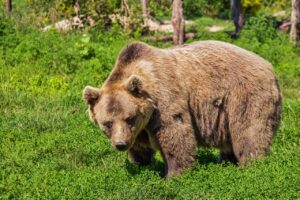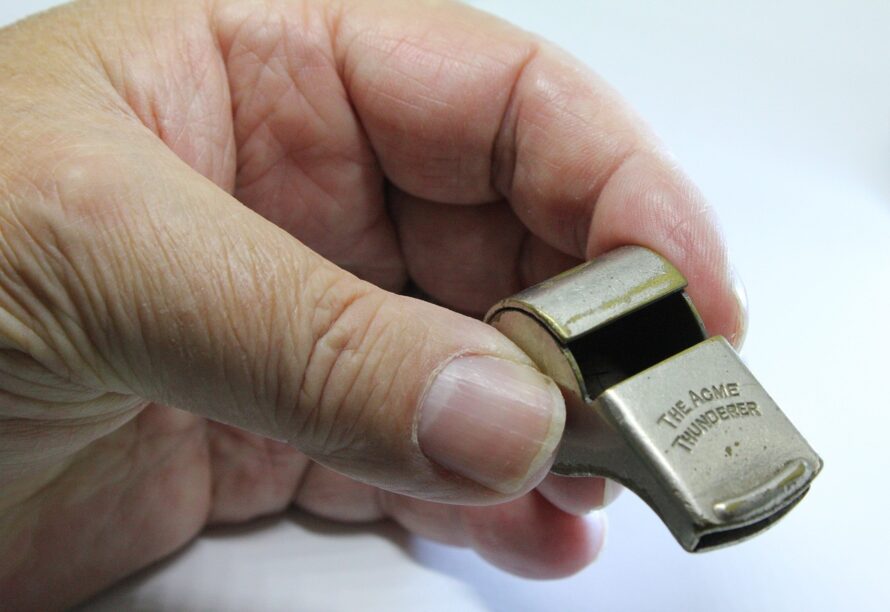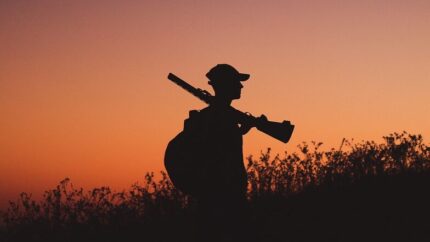How to Protect Yourself from Predators
The great outdoors can be an exciting experience but, especially in a survival situation, it can also be dangerous. It is home to many predators, including wild animals, insects, and even other humans. Self-defense in the great outdoors is a crucial skill that everyone should know.
It’s always wise to be prepared for any possible danger. Here are some tips on how to protect yourself from predators in the wild.
1. Stay Alert
 The first and most crucial step is to stay alert. Always be aware of your surroundings and keep an eye out for any signs of danger. Pay attention to your gut instincts and intuition. If something feels wrong, it probably is.
The first and most crucial step is to stay alert. Always be aware of your surroundings and keep an eye out for any signs of danger. Pay attention to your gut instincts and intuition. If something feels wrong, it probably is.
One of the threats that you’ll have to face when you’re bugging out is the potential danger from predators. You could run into animals that would love to make a meal out of you. Animals like bears, coyotes, and bobcats have been known to attack people in opportunistic moments as well as for no reason at all.
Being vigilant and trusting your instincts can help you stay safe by detecting potential hazards early.
2. Carry Pepper Spray or Bear Spray
The most versatile and non-lethal self-defense tool that can help you fend off predators and protect yourself while outdoors is simple bear spray. Bear spray is much like pepper spray, only it’s more powerful and designed for outdoor use. Because bears and other predators rely so heavily on smell, they have very sensitive noses.
So if a bear is threatening you, and it gets sprayed with bear spray, it will immediately feel intense pain in its nose and eyes, causing it to retreat as quickly as possible.
Bear spray is easy to carry and use, and it can provide a few seconds of distraction, allowing you to escape from danger. Make sure you practice using it before going out in the wild.
3. Should You Avoid Eye Contact with Wild Animals?
 It is commonly said that if you encounter a wild animal, avoid making direct eye contact with them. This can be seen as a threat, and they may attack you. Instead, try to make yourself look bigger and louder. If you make plenty of non-threatening human noises ahead of time, you probably won’t surprise the animal in the first place
It is commonly said that if you encounter a wild animal, avoid making direct eye contact with them. This can be seen as a threat, and they may attack you. Instead, try to make yourself look bigger and louder. If you make plenty of non-threatening human noises ahead of time, you probably won’t surprise the animal in the first place
There are many opinions about whether to not to look wild animals in the eye and in some cases it depends on the animal. Look for advice in your local area from outdoor experts who can give you some guidance.
4. Bring a Whistle
A whistle is another useful tool in self-defense outdoors. It’s small and easy to carry, but it can help you alert others if you’re in danger. If you’re attacked, blow the whistle as loud as you can. This will attract attention from people nearby and hopefully scare off the predator.
5. Travel in Groups
 Traveling in groups is always safer than going alone. Predators tend to avoid groups of people as they are more challenging to attack. Being in a group provides safety in numbers and reduces the likelihood of getting targeted by predators.
Traveling in groups is always safer than going alone. Predators tend to avoid groups of people as they are more challenging to attack. Being in a group provides safety in numbers and reduces the likelihood of getting targeted by predators.
By following these simple tips, you can be better equipped to deal with any possible threats in the wild during a survival situation. Stay alert, carry the right tools, and travel in groups to ensure your safety in the wild.
Read More: 10 Survival Skills to Learn to Keep You Alive When You Bug Out


